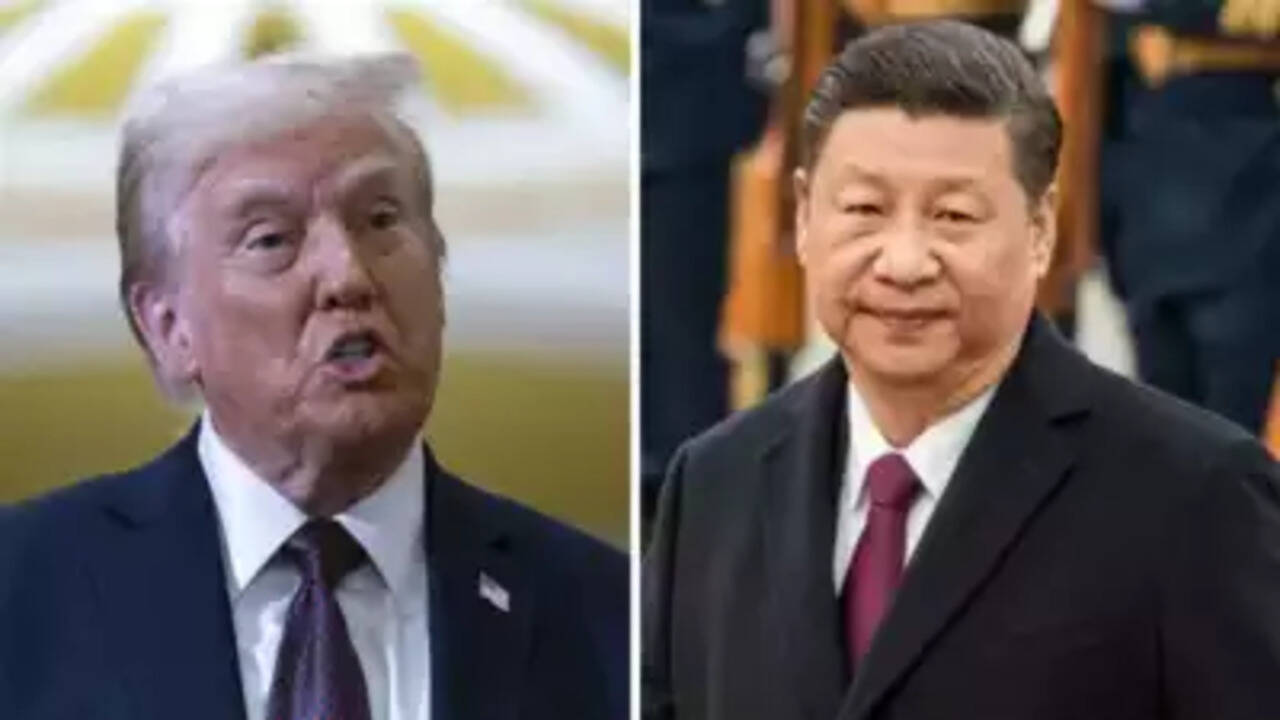Global Trade Tensions: EU, US, and China Maneuvers
In a world increasingly defined by high-stakes negotiations, the European Union, the United States, and China are engaging in a delicate dance over tariffs and trade relations, reshaping economic alliances.
Published April 11, 2025 - 00:04am

Image recovered from arabnews.com
The European Union is poised to implement its first set of retaliatory measures in response to US President Donald Trump's aggressive tariff policies. These countermeasures are introduced as Trump's administration enacts significant tariffs on several countries, intensifying the risk of a global trade war. Notably, the US has imposed a 104 percent duty on imports from China, along with 25 percent tariffs on European steel, aluminum, and automobiles, under the pretense of reciprocal tariffs.
The European Commission, spearheading EU trade policy, announced plans to levy an additional 25 percent duty on various US imports, valued at around €21 billion. While these measures are modest compared to the €26 billion hit on EU metal exports due to US tariffs, the EU's strategy aims to strike a balance between confrontation and cautious engagement. A variety of US products, including motorcycles, poultry, fruit, wood, and clothing, are targeted in this response, carefully orchestrated to exclude sensitive sectors like dairy and alcoholic beverages after internal negotiations.
Simultaneously, trade tensions with China are unfolding on another front. The European Union is considering imposing a minimum price on Chinese electric vehicles, citing substantial subsidies provided by the Chinese government to its EV industry. This move aligns with prior decisions, such as raising tariffs on Chinese EVs by up to 45.3 percent, combining these with existing duties. Germany, a pivotal player in the global automotive scene, acknowledges the potential strain this could cause given its significant economic ties with China. Approximately one-third of German car manufacturers' revenues are derived from the Chinese market, underscoring the complex web of dependencies in today's trade landscape.
Adding further complexity, the United States' shifting stance on tariffs introduces new variables. Initially, the Trump administration indicated an intention to significantly hike tariffs across over 180 countries. However, a sudden policy reversal has resulted in a temporary suspension for regions outside China, with tariffs adjusted to a more manageable 10 percent, although China's exposure remains at a heightened 125 percent.
In parallel, European diplomatic channels echo themes of cooperation, as exemplified by recent dialogs between European Commission President Ursula von der Leyen and Canadian Prime Minister Mark Carney. These discussions reinforced both parties' commitments to an open trading environment and further integration into the Comprehensive and Progressive Agreement for Trans-Pacific Partnership (CPTPP).
Nevertheless, amidst these evolving trade strategies, the central discourse remains the tension between protectionism and liberal trade practices. China's resolve, articulated by Premier Li Qiang, remains firm against what he characterizes as 'intimidation' by the US. China is poised to counter US tariffs equally aggressively as it seeks to protect its own economic interests.
This intricate backdrop of trade relations underscores the need for strategic foresight and negotiations. The EU's temporary suspension of tariffs on American goods for 90 days embodies a willingness to engage in meaningful discussions, yet it carries implicit warnings that retaliation remains a viable option should talks fail.
As global players navigate these turbulent waters, the conversations around tariffs are reframed not merely as economic measures but as instruments of international diplomacy. The delicate balance of interests echo through discussions whether it's between the EU and China deliberating on minimum prices and tariffs or efforts to recalibrate the relations between longstanding allies such as the US and the EU.






